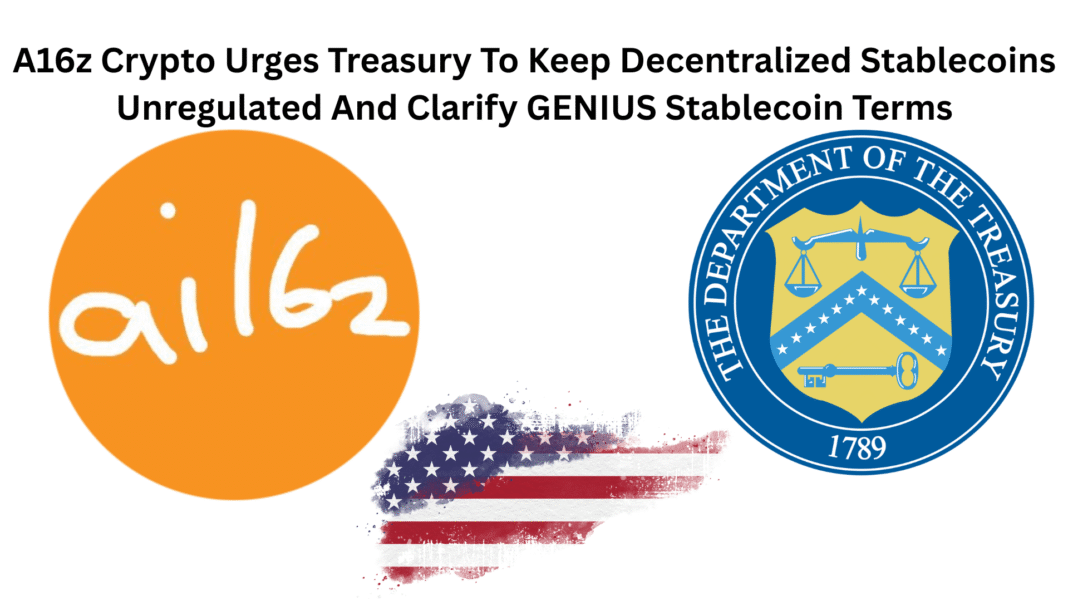Andreessen Horowitz’s cryptocurrency-focused division, A16z Crypto, said that decentralised digital assets should continue to be free from regulation in order to promote innovation and encouraged U.S. Treasury authorities to define key terms in new stablecoin laws.
A16z on the GENIUS Act
The company addressed an advance notice of proposed regulation on implementing the GENIUS stablecoin legislation that was approved earlier this year in a letter dated November 4 to Treasury Secretary Scott Bessent.
The law created a framework for “payment stablecoins” and mandated that authorities handle concerns related to illegal finance, consumer protection, and financial stability.
Although a16z crypto hailed the Genius Act as “a momentous step in advancing the future of digital finance,” it urged further clarification on whether decentralised stablecoins are included by the law.
Also Read: Miden Raises $25M Seed Round Led By a16z Crypto, Hack VC & 1kx
The company used Ethereum collateral-backed LUSD as an illustration of a decentralised stablecoin that is issued by independent smart contracts devoid of a centralised authority.
“Treasury should make clear that since decentralised stablecoins are not issued by a ‘person’ within the meaning of the Act, they are not covered by the prohibition in Section 3(a),” the letter stated. Section 3(a) limits payment stablecoin issuance in the U.S. to only permitted issuers, according to the letter.
A16z Crypto ask for controlled regulations
The business suggested using a control-based decentralisation framework from the 2025 Digital Asset Market Clarity Act, which exempts non-custodial wallet development, node operation, and transaction validation from intermediary laws.
In order to combat illegal financing without limiting innovation, a16z urged for updated anti-money laundering and know-your-customer regulations in addition to levelling the playing field for stablecoin issuers.
According to Michele Korver, head of regulatory at a16z Crypto, the business also addressed FinCEN’s need for creative ways to stop the financing of illicit digital assets. Decentralised digital identification was proposed by A16z as a remedy.
“Decentralised digital identity — built with privacy-preserving cryptography — can both strengthen national security and protect civil liberties,” Korver wrote.
According to Korver, safe identity verification is made possible while limiting the overexposure of personal data through the use of multi-party computing technologies and zero-knowledge proofs.
In other news, in October, A16z, had invested $50 million in Jito, the liquid staking system that drives the Solana network. A16z would get an undetermined number of Jito’s native tokens at a discounted price as a result of the deal.
According to Korver, the reusable nature of digital credentials might save expenses for institutions while aiding in the fight against fraud and the detection of illegal activity.


